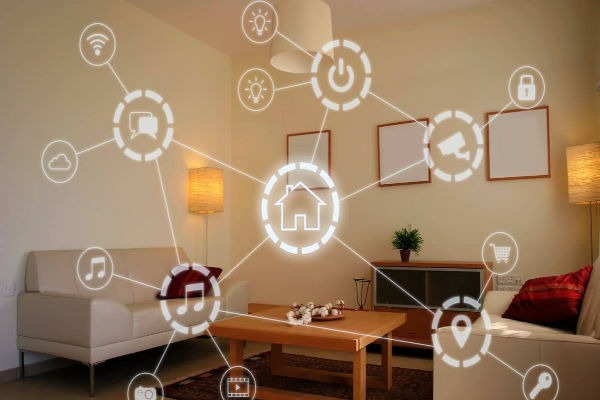India is in the midst of a technological revolution with the smart home market experiencing unprecedented growth. Once valued at ₹90,000 crore in 2023, the smart and non-smart home category is now projected to expand approximately by 1.5 times, reaching ₹140,000 crore by 2028. Out of this, the smart home category which was valued at ₹8000 crore in 2023 is estimated to become ₹36,000 crore by 2028 , according to a study by Redseer Strategy Consultants. While security-related products are expected to lead the charge, contributing around 14% to the market, other categories are also poised for steady growth by CY28.
This surge underscores India’s rapidly growing appetite for advanced home technologies, enhancing our lifestyle which is driven by the increasing accessibility and affordability of smart home devices. Redseer Strategy Consultants, a leading strategy consulting firm, has released a comprehensive study on the rapid adoption and growth of smart home devices in India. Their findings reveal significant trends, key statistics, and the transformative impact of smart technology on Indian households.
Detailed Findings:
- Home devices are moving from being Conventional to Connected
- Smart home devices in India have evolved from basic, high-energy-consuming gadgets to sophisticated, connected systems that can be easily controlled from our phones. These devices offer unparalleled convenience, enabling users to manage their homes remotely and effortlessly.
- Key categories driving this revolution include security (cameras, doorbells, locks), lighting and control (lights, switches, plugs), and small appliances (air purifiers, vacuum cleaners).
- India’s smart home market presents a substantial growth opportunity
- India’s smart home market, valued at approximately ₹8,000 crore in 2023, is projected to reach ₹36,000 crore by 2028.
- As of CY 2023, internet penetration in India has reached approximately 55% of the population. This growth has led to a substantial increase in the adoption of connected home devices. Notably, the penetration rate of smart devices rose to 8-10% in 2023, with expectations to reach 12-15% by CY25 and an impressive 25-28% by 2028
- This growth is fueled by increased affordability, and evolving consumer needs.
- Most preferred smart devices
- Security cameras and smart locks are leading the charge in enhancing home security, with Net Promoter Scores (NPS) of 63 and 80, respectively. Smart lighting and small appliances are also gaining popularity, with smart bulbs achieving an NPS of 72 and smart air purifiers leading the small appliance category with an NPS of 85.
- Security cameras and smart locks are leading the charge in enhancing home security, with Net Promoter Scores (NPS) of 63 and 80, respectively. Smart lighting and small appliances are also gaining popularity, with smart bulbs achieving an NPS of 72 and smart air purifiers leading the small appliance category with an NPS of 85.
- Consumers are fast embracing smart solutions owing to the needs of our modern lifestyles
- The study reveals that 70% of consumers are either using or interested in using smart home devices.
- Currently, 44% of consumers own smart home devices, with another 25% are potential users considering future purchases.
- The surge in adoption of smart products is fueled by key factors such as the convenience of automation, improved security, and the integration of AI and IoT technologies. The advancement makes these products more efficient and user-friendly, aligning seamlessly with modern lifestyles.
- Improved production efficiencies have made smart devices more affordable, aligning with rising disposable incomes. Additionally, discretionary home improvement spending has been increasing by ~6% annually, creating an opportunity for smart home devices to occupy a greater consumer wallet share. .
“India’s smart home market is at an inflection point due to changing market dynamics, most notably the growing customer interest, which has led to a 4X increase in smart home device penetration since pre-COVID levels. This trend is further bolstered by rising internet penetration, now at ~55%, enabling a wider array of use cases for smart home devices. Notably, our recent customer research revealed that ~70% of customers are willing to explore beyond entertainment devices and are either using or interested in products in new categories such as smart security, lighting, and appliances,” said Amitabh Kumar, Engagement Manager at Redseer.













